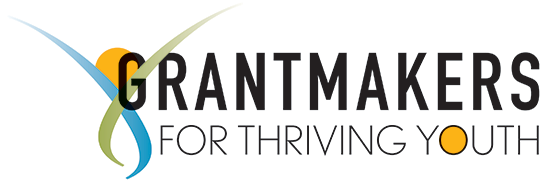Networks
The Collaborative is home to the Education Funder Strategy Group, Grantmakers for Thriving Youth, Data Funders Collaborative, and Global Science of Learning Education Network. Each network shares a commitment to developing and advancing equitable and just opportunities for all children to secure a high-quality education.
Our Networks

Launched in 2009, the Education Funder Strategy Group is an exemplar of The Collaborative’s vision to convene and connect influential education leaders in philanthropy. EFSG is a learning community of leading foundations focused on education policy from early childhood to college and career readiness and success. EFSG’s mission is to help maximize philanthropy’s effectiveness in systemically improving public education for all students as the foundation for a healthy democracy and vibrant communities.
Participating foundations recognize that they can achieve much more by working together than any foundation could accomplish on its own. EFSG provides space and support for working groups to convene, and look to the group’s leaders in helping to share the broader learning agenda for EFSG.

Launched in 2016, Grantmakers for Thriving Youth (GTY) is a funders’ forum promoting equitable systems, structures, and opportunities for a comprehensive approach to learning and development so all young people can build and strengthen the skills and capacities they need to thrive in learning, work, citizenship, and life.
Our shared principles and commitment to equity anchor our work to build a robust, coordinated, and collaborative network of philanthropic organizations investing throughout our education and youth development ecosystems to support thriving youth.
GTY pursues three major strategies: 1) Learning: GTY hosts web seminars and gatherings for our broad network of funders and others focused on issues important to thriving youth. 2) Leadership: GTY’s Steering Committee is composed of representatives from member organizations who provide financial support, thought leadership, time and energy toward building a trusted community of grantmakers committed to field-building, peer networks, shared learning, and collaborative action. 3) Action: GTY’s Workgroups convene funders on specific topics for focused learning, alignment, and collaboration.
Learn more about our work: https://thrivingyouth.org

The Data Funders Collaborative is a partnership of leading philanthropic organizations working together to support learning, discovery and action focused on the ethical collection, protection and use of data across sectors. DFC members recognize how people can use information to improve the effectiveness of programs and policies and more broadly to confront entrenched inequality in systems. The DFC’s aim is to ensure communities have the information and the skills they need to achieve equitable outcomes in education, health and other social services sectors.

The Global Science of Learning and Education Network strives to elevate learning around the world by building a global scientific infrastructure to address the increasing learning needs of young people in a fast-changing world. GSoLEN’s mission is to achieve maximum worldwide benefit from science-based strategies designed to meet the learning needs of our global future and to overcome the impact of systemic inequities on learning.
GSoLEN promotes a deep understanding of Science of Learning and the extent to which it can be generalized and implemented in practice. Through this process, network participants develop and share best practices for learning, education, and policy resources that consider for whom, at what developmental stage, under what conditions, and in what context SoL can be implemented in the world’s distinctive cultures and conditions. Grounded in an environment of trust and co-invention, this Global Science of Learning Network is fertile ground for training the very best interdisciplinary scientists, technologists, information brokers, practitioners, and policymakers to lead the innovation of SoL in education to benefit students in their global contexts.
Learn more about our work: https://gsolen.ucsd.edu
